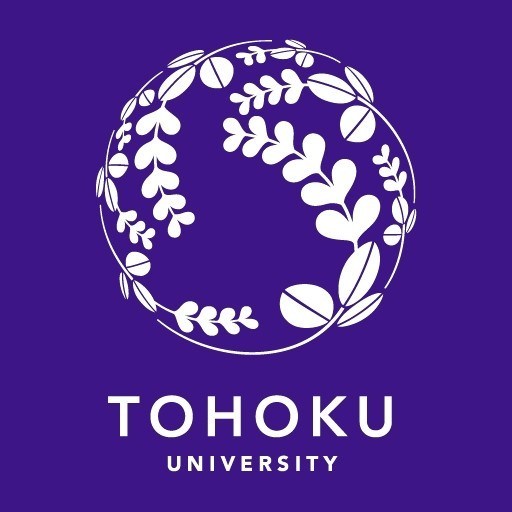Photos of university
The International Mechanical and Aerospace Engineering program at Tohoku University offers a comprehensive and rigorous education designed to cultivate innovative engineers equipped to address the complex challenges of the modern aerospace and mechanical industries. This program integrates advanced coursework, cutting-edge research opportunities, and practical training to provide students with a deep understanding of fundamental engineering principles, as well as specialized knowledge in aerospace and mechanical engineering fields.
Students will study a wide range of subjects, including fluid mechanics, solid mechanics, thermodynamics, control engineering, materials science, combustion, aerodynamics, propulsion systems, and structural analysis. The curriculum emphasizes both theoretical foundations and applied skills, ensuring graduates are prepared for careers in aircraft and spacecraft design, manufacturing, and maintenance, as well as in the broader mechanical engineering sector.
The program is delivered in an international environment, promoting cross-cultural exchange and collaboration with students and faculty from diverse backgrounds. Courses are conducted mainly in English to facilitate global participation and communication. Students benefit from state-of-the-art laboratories, research facilities, and industry partnership programs, which enable them to engage in hands-on projects, internships, and research activities under the supervision of experienced faculty members.
In addition to technical training, the program fosters critical thinking, problem-solving abilities, and innovative design skills. Students are encouraged to participate in seminars, workshops, and international conferences, broadening their perspectives and professional networks. The curriculum also emphasizes sustainable engineering practices and the development of technologies that contribute to environmental conservation and safety.
Graduates of this program are well-positioned to pursue careers in aerospace and mechanical industries worldwide, or to continue their education through master's and doctoral research. The international perspective, combined with comprehensive technical knowledge and practical experience, prepares students to become leading engineers and researchers who can contribute effectively to technological advancements and societal progress.
Department of Aerospace Engineering
- Numerical Analysis
- Applied Analysis
- Fluid Dynamics
- Solid Mechanics
- Thermal Science and Engineering
- System Control Engineering
- Materials Chemistry
- Computer Hardware Fundamentals
- Solid State Physics
- Mechanics of Plasticity
- Structure and Function Living System
- Aerospace Systems
- Aerospace Propulsion
- Computation Fluid Dynamics
- Aerospace Structural Mechanics
- Aerospase Fluid Dynamics
- Space Robotics
- Space Engineering for Robotic Exploration
- Aerospace Combustion Dynamics
- Cryogenic Physics and Engineering
- The Science of Shock Waves
- Mathematical Modeling and Computation
- Applied Mathematical Fluid Dynamics
- Fluid Design Informatics
- Physical Fluctuomatics
- Discussion on Environmental and Industrial Policy
- Interdisciplinary Research
- Special Lecture in Cooperation with JAXA
- Project-Based Learning for Frontier of Mechanical Engineering
- Internship Training
- International Scientific Internship Training
- Special Lecture on Aerospace Engineering A
- Advanced Seminar on Aerospace Engineering A
- Seminar on Simulation Science
- Seminar on Spacetechnology
- Innovation Oriented Seminar on Mechanical Engineering
- Master Course Seminar on Aerospace Engineering
Department of Mechanical Systems and Design
- Numerical Analysis
- Applied Analysis
- Fluid Dynamics
- Solid Mechanics
- Thermal Science and Engineering
- System Control Engineering
- Materials Chemistry
- Computer Hardware Fundamentals
- Solid State Physics
- Mechanics of Plasticity
- Structure and Function Living System
- Intelligence and Systems Engineering
- Design of Materials System
- Intelligent Machine Design
- Nano/Micro/Tribology
- Micro-Nanomechanical Architectonics
- Engineering of Fluid Systems
- Control of Thermal Energy
- Energy Systems Engineering
- Degradation in High Temperature Environments of Structures and Materials
- Environmental Heat-Transfer Control
- Applied Energy Dynamics
- Electromagnetic Functional Flow Dynamics
- Mechanical Systems Maintenance Engineering
- Multiphase Flow Systems
- Introduction to Solid State Ionics
- Ultra-Highspeed Information Processing Algorithms
- Computer Architecture
- Space Robotics
- Ultraprecision Machining
- Manufacturing Systems
- Physical Fluctuomatics
- Discussion on Environmental and Industrial Policy
- Interdisciplinary Research
- Project-Based Learning for Frontier of Mechanical Engineering
- Internship Training
- International Scientific Internship Training
- Special Lecture on Mechanical Systems and Design A
- Advanced Seminar on Mechanical Systems and Design A
- Seminar on Digital Design
- Seminar on Energy Systems Engineering
- Innovation Oriented Seminar on Mechanical Engineering
- Master Course Seminar on Mechanic
Department of Nanomechanics
- Numerical Analysis
- Applied Analysis
- Fluid Dynamics
- Solid Mechanics
- Thermal Science and Engineering
- System Control Engineering
- Materials Chemistry
- Computer Hardware Fundamentals
- Solid State Physics
- Mechanics of Plasticity
- Structure and Function Living System
- Precision Nanometroloty
- Fundamentals of Damege Management
- Intelligent Sensing of Materials
- Mechanics of Materials System
- Fundamental Nano-Technology
- Informative Nanosystem
- Ultraprecision Machining
- Nano/Micro Mechanoptics
- Nano/Micro/Tribology
- Strength and Reliability of Microstructures and Devices
- Kinetic Theory of Gases
- Nano-Process Engineering
- Nanoscale Thermal and Fluid Engineering
- Nano-Physics, Analysis and Control of Surfaces
- Intelligent Control Systems
- Design of Crustal Complex Fracture Systems
- Engineering for Geo-Energy Exploitation
- Manufacturing Systems
- Physical Fluctuomatics
- Discussion on Environmental and Industrial Policy
- Ethics of Life for Young Engineers
- Interdisciplinary Research
- Project-Based Learning for Frontier of Mechanical Engineering
- Internship Training
- International Scientific Internship Training
- Special Lecture on Nanomechanics A
- Advanced Seminar on Nanomechanics A
- Seminar on Materials and Mechanics
- Seminar on Nanotechnology
- Innovation Oriented Seminar on Mechanical Engineering
- Master Course Seminar on Nanomechanics
- Bachelor's degree to apply for Master's program
- Master's degree to apply for Doctoral Degree program
- Basic academic ability: Grade point average (GPA) 2.30 or higher out of 3.0
- English proficiency: TOEFL (iBT: 79), IELTS (6.0), etc.
- Entrance examination Fee JPY 30,000
- Entrance Fee JPY 282,000
Financing studies for the International Mechanical and Aerospace Engineering program at Tohoku University are designed to support international students throughout their academic journey. The university offers a range of scholarships, grants, and financial aid options to assist students in covering tuition fees, living expenses, and other associated costs. International students are encouraged to apply for scholarships such as the MEXT (Monbukagakusho) Scholarship provided by the Japanese government, which offers full or partial tuition coverage along with a monthly stipend. Tohoku University also provides its own scholarships, including the Tohoku University International Student Scholarship, which is awarded based on academic merit and financial need. Additionally, students may be eligible for external funding from various governmental and private organizations in their home countries or internationally.
Apart from scholarships, students can explore part-time work opportunities available on campus, which are typically allowed within certain hours and under specific regulations for international students. The university’s International Student Support Division offers guidance and assistance on financial planning, scholarship applications, and employment regulations to ensure students can manage their finances effectively during their studies. It is recommended that prospective students carefully review the specific eligibility requirements and application deadlines for each funding option. Furthermore, some students may choose to secure loans or sponsorships from their home countries or private financial institutions to support their educational expenses.
Overall, Tohoku University prioritizes providing financial support and resources to enable international students to focus on their academic and research pursuits. The availability of diverse funding opportunities aims to promote a globally diverse student body and foster academic excellence. Students are advised to consult the university’s official website and contact the admissions or international student office for comprehensive and up-to-date information on financing options for the International Mechanical and Aerospace Engineering program.
The International Mechanical and Aerospace Engineering program at Tohoku University offers students a comprehensive education in the fields of mechanical and aerospace engineering, emphasizing both fundamental principles and practical applications. The program aims to develop engineers capable of contributing to advances in aerospace technology, automotive engineering, energy systems, and manufacturing processes through rigorous coursework, research opportunities, and international collaboration. The curriculum is designed to provide a solid foundation in core engineering disciplines such as thermodynamics, fluid mechanics, materials science, control systems, and structural analysis, while also incorporating specialized courses in aerospace design, propulsion systems, robotics, and sustainable energy.
Students benefit from state-of-the-art laboratory facilities and research centers dedicated to aerospace and mechanical engineering research, fostering innovation and experimentation. The program encourages a global perspective through partnerships with international universities and industry leaders, preparing students for careers in global markets. In addition, the program promotes interdisciplinary learning, integrating knowledge from related fields such as electrical engineering, computer science, and environmental science to address complex engineering challenges effectively.
Graduate students have chances to participate in cutting-edge research projects, internships, and collaborative initiatives, often leading to publications in scientific journals and presentations at international conferences. Tohoku University’s faculty comprises leading experts and researchers actively engaged in advancing engineering science and technology. The program’s focus on research-driven education ensures that students are well-equipped with both theoretical knowledge and practical skills.
Graduates of the International Mechanical and Aerospace Engineering program are highly regarded in industry and academia, often progressing into careers in aerospace companies, automotive firms, research institutions, and government agencies. The program's emphasis on innovation, sustainability, and international cooperation aligns with global trends in engineering development, making it a robust choice for students seeking a dynamic and challenging academic path in mechanical and aerospace engineering.







